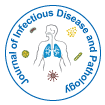开放获取期刊获得更多读者和引用
700 种期刊 和 15,000,000 名读者 每份期刊 获得 25,000 多名读者
抽象的
Covid-19 pandemic: a call to action
António Ferreira
The Covid-19 pandemic is having a dramatic impact on the world’s population. Currently, there are more than half a million new cases per day and there are more than 10,000 daily deaths [1]. The effects of this pandemic far outweigh the direct consequences of the disease. In several industrialized countries there is an excess of all-cause mortality, not only due to deaths due to COVID-19, but due to an excess of mortality due to other causes. The lock-down of health systems, focused on patient care in Covid-19, seems to be the most plausible explanation for the non-CoVID-19 excess of mortality [2]. On the other hand, the measures adopted by governments to combat the pandemic have led to the shutdown of society and the economy, leading to brutal falls in GDP [3]. The effects of this economic crisis affect all social groups but are more intense among the poorest and disadvantaged.

 English
English  Spanish
Spanish  Russian
Russian  German
German  French
French  Japanese
Japanese  Portuguese
Portuguese  Hindi
Hindi